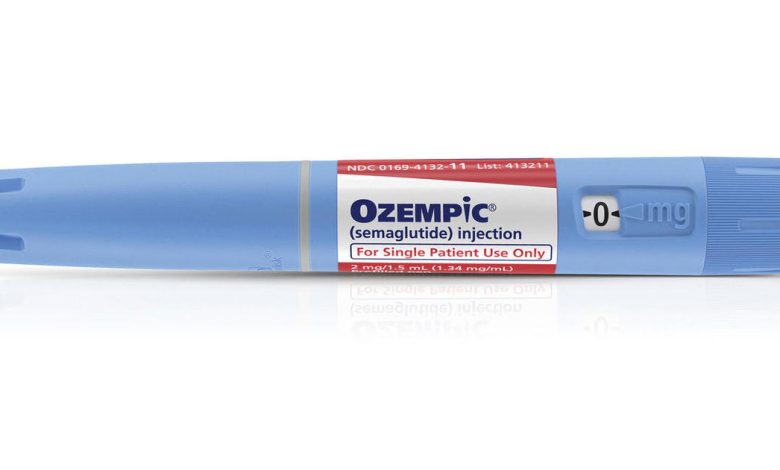Why Does Ozempic Cause Pancreatitis Symptoms?

Ozempic is a medication used to treat type 2 diabetes. It contains the active ingredient semaglutide, which works by mimicking the effects of a hormone called glucagon-like peptide-1 (GLP-1) in the body. This helps to regulate blood sugar levels and can lead to weight loss in some patients.
While Ozempic is generally well-tolerated by most patients, there have been reports of pancreatitis symptoms occurring in some patients who take the medication. Pancreatitis is a condition in which the pancreas becomes inflamed, and can be very serious if left untreated. In this article, we will explore why Ozempic can cause pancreatitis symptoms, and what patients can do to reduce their risk.
Understanding the Pancreas
The pancreas is a gland located in the abdomen that plays a crucial role in digestion and regulating blood sugar levels. It produces a variety of hormones and enzymes that help break down food and release glucose into the bloodstream.
One of the hormones produced by the pancreas is glucagon, which helps to raise blood sugar levels when they are too low. Another hormone is insulin, which helps to lower blood sugar levels when they are too high. These hormones work together to maintain a healthy balance of glucose in the bloodstream.
Pancreatitis
Pancreatitis is a condition in which the pancreas becomes inflamed. This inflammation can be caused by a variety of factors, including alcohol consumption, gallstones, high levels of triglycerides in the blood, and certain medications.
When the pancreas becomes inflamed, it can cause a range of symptoms, including:
• Abdominal pain
• Nausea and vomiting
• Fever
• Rapid heartbeat
• Swollen and tender abdomen
In severe cases, pancreatitis can lead to complications such as pancreatic abscesses, pancreatic pseudocysts, and organ failure. Treatment typically involves hospitalization, pain management, and, in some cases, surgery.
Why Ozempic Can Cause Pancreatitis Symptoms
The exact mechanism by which Ozempic can cause pancreatitis symptoms is not fully understood. However, there are a few theories that may help explain the link.
First, Ozempic works by mimicking the effects of GLP-1 in the body. GLP-1 is a hormone produced by the intestines that helps to regulate blood sugar levels by stimulating insulin secretion and suppressing glucagon secretion. GLP-1 also slows down the rate at which food moves through the digestive tract, which can help to reduce appetite and promote weight loss.
One theory is that Ozempic may increase the levels of GLP-1 in the body to a greater extent than other GLP-1 agonist medications. This could potentially lead to an overstimulation of the pancreas, which may trigger inflammation and pancreatitis symptoms.
Another theory is that Ozempic may cause a blockage in the pancreatic ducts, which are the tubes that carry digestive enzymes from the pancreas to the small intestine. If these ducts become blocked, the enzymes can build up in the pancreas and cause inflammation.
Finally, some researchers believe that Ozempic may be associated with an increased risk of gallstones. Gallstones are a common cause of pancreatitis, and if Ozempic increases the risk of developing gallstones, it could also increase the risk of pancreatitis.
Reducing the Risk of Pancreatitis
If you are taking Ozempic to manage your type 2 diabetes, it is important to be aware of the potential risk of pancreatitis symptoms. However, there are steps you can take to reduce your risk.
First, be sure to follow your doctor’s instructions carefully when taking Ozempic. Do not take more or less of the medication than prescribed, and be sure to monitor your blood sugar levels as directed. If you experience any symptoms of pancreatitis, such as abdominal pain, nausea, or vomiting, contact your doctor immediately.
You should also inform your doctor if you have a history of pancreatitis or other pancreatic conditions, as this may affect whether or not Ozempic is the right medication for you.
In addition, there are some lifestyle changes you can make to reduce your risk of pancreatitis. These include:
• Limiting your alcohol consumption: Excessive alcohol consumption is a common cause of pancreatitis, so it’s important to limit your intake or avoid alcohol altogether if possible.
• Maintaining a healthy weight: Being overweight or obese can increase your risk of developing pancreatitis, so it’s important to maintain a healthy weight through a balanced diet and regular exercise.
• Managing your cholesterol levels: High levels of triglycerides in the blood can increase your risk of developing pancreatitis, so it’s important to manage your cholesterol levels through a healthy diet and medication if needed.
• Avoiding high-fat meals: Eating meals that are high in fat can increase your risk of developing gallstones, which are a common cause of pancreatitis.
In conclusion, while Ozempic is an effective medication for managing type 2 diabetes, it is important to be aware of the potential risk of pancreatitis symptoms. The exact mechanism by which Ozempic can cause pancreatitis is not fully understood, but there are theories that suggest it may be related to overstimulation of the pancreas, blockage of the pancreatic ducts, or an increased risk of gallstones. To reduce your risk of pancreatitis, it’s important to follow your doctor’s instructions carefully, inform them of any history of pancreatic conditions, and make lifestyle changes such as limiting alcohol consumption and maintaining a healthy weight.





